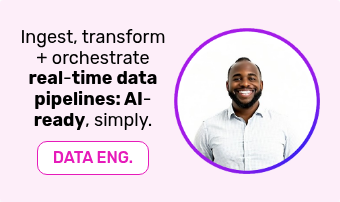Marrying physical environments and operations with smart digital technology and big data can deliver transformational business results. However, few people within industrial spaces have the understanding, awareness, and knowledge required to plot a path that will deliver success with them, holistically.
The reasons for this are many (some of which are covered off in this article), but what is clear is that your customers need help and that very few have millions of dollars to spend on consultants.
This creates an opportunity for existing industrial suppliers and technologists to fill the gap and support customers to succeed with IoT and Industry 4.0 technologies (you can read more about the opportunity here and the technologies involved here).
Fundamentally, you need to create for them a roadmap and give them an understanding of how to navigate the way ahead.
How you can build your customers' Industry 4.0 roadmap.
- Understand the customer's needs - The first step in any strategic roadmap is understanding the specific needs of your customer. It's essential to get a clear picture of their current operational processes, challenges they face, and their business objectives. Remember that every business is unique; the Industry 4.0 journey for a company in the automotive industry may look very different from a company in the utilities sector.
- Leverage expert advice - Given the complex and rapidly evolving nature of Industry 4.0 technologies, it's crucial to tap into expert advice when crafting your roadmap. This could mean engaging with technical experts from the technologies you're implementing (like Rayven!), or even collaborating with other businesses in the space. These professionals can bring a wealth of knowledge (for free), providing insights on the latest trends, potential pitfalls, and best practices.
- Identify key areas of improvement - Once you understand your customer's operations and their specific pain points, it's time to identify key areas of improvement. This could be anything from streamlining production processes using real-time data to improving environmental performance. Always prioritise areas that align with your customer's broader business objectives and with which there's likely to be broader support.
- Select the right technologies - Industry 4.0 is synonymous with technologies like the Internet of Things (IoT), machine learning, and cloud computing. However, it's crucial to select the right technologies that fit your customer's needs. Not every business needs to implement every aspect of Industry 4.0 all at once - in fact, that's usually highly-undesirable. Start with technologies that offer the most impact and that will connect everything together: your IoT platform.
- Implement pilot projects - Before a full-scale implementation of an Industry 4.0 initiative, consider executing a smaller pilot project. This allows you to test the technologies, understand their impact, and learn from any implementation challenges on a smaller scale. Results from pilot projects can provide valuable insights for fine-tuning the larger implementation plan.
- Plan a phased wider implementation - Industry 4.0 transformation doesn't happen overnight. It's a journey that requires a phased approach. Develop an implementation timeline that starts with quick wins. These could be simple IoT implementations that offer immediate value, such as real-time asset or environmental monitoring. Then, gradually move towards more complex initiatives like advanced predictive analytics or AI-driven automation.
- Prioritise education and training - One of the key challenges in implementing Industry 4.0 is the lack of skilled resources. Your customers may have a workforce skilled in traditional practices but unfamiliar with new digital tools. An integral part of your roadmap should, therefore, be education and training. Help your customers bridge the skills gap by providing training sessions, webinars, or one-on-one coaching.
- Ensure robust security measures - With an increased level of connectivity and data sharing, Industry 4.0 brings its own set of security challenges. Cybersecurity measures should not be an afterthought, but an integral part of your Industry 4.0 roadmap. Work with your customers to create a robust security framework that protects sensitive data and ensures the safe operation of connected devices.
- Encourage collaboration and partnerships - Industry 4.0 is not a solo journey. It involves collaboration and partnerships with technology providers, system integrators, and other stakeholders. Encourage your customers to build strategic partnerships that can help them leverage the full potential of Industry 4.0 technologies.
- Measure and review progress - Ensure that there is a system in place to measure and review progress. Remember that the Industry 4.0 journey is not just about technology implementation but about achieving business objectives. Regular reviews will help your customers assess the impact of their efforts and make necessary adjustments to their roadmap.
The journey to Industry 4.0 is complex, but with a robust roadmap and the right expert advice, suppliers can provide invaluable guidance to their customers, helping them navigate this transformation successfully - and with a lot less cost.
If you're an existing industrial supplier improving your Industry 4.0 technology who feels like they would like to offer their customers the help and support they're going to need in the future, and want support becoming and end-to-end IoT and Industry 4.0 solution provider, but don't know where to start: there's free help and advice available.
The emergence of full-stack, low-code IoT platforms and syndicated applications have made it very easy for you to access the technology and skills needed to deliver on a complete vision.
Speak to us today to have a no obligation discussion about your needs.
Author






















